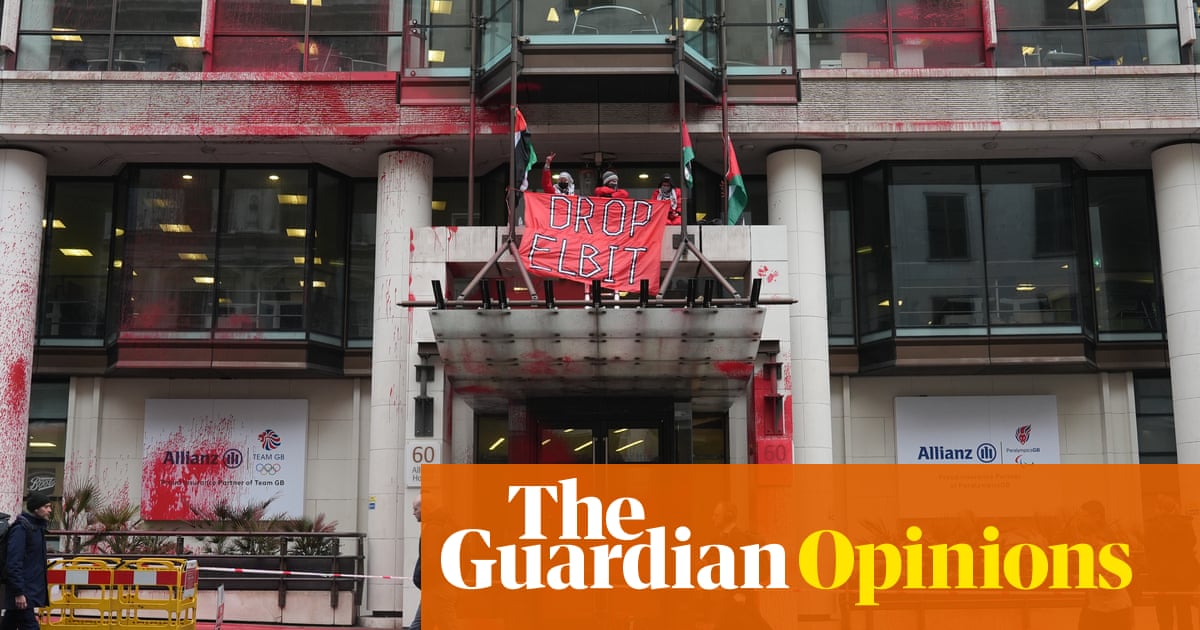The UK government’sintentionto proscribe Palestine Action under the Terrorism Act 2000 marks a significant escalation in the treatment of civil disobedience. It elevates a group known forthrowing red paintat buildings and military aircraft into the same legal category as al-Qaida and Islamic State. If there’s a serious threat from these activists, we’ve yet to see it – just a ministerial statement discussing civil disobedience in the language of counterinsurgency.
If this is all that Palestine Action can be accused of, then the government is wrong. Ministers are setting a dangerous precedent by using terror laws to outlaw protest – and penalising protesters not for violence but for making a nuisance and vandalism. The cost will be felt in press freedom, political accountability and the right to resist. The home secretary’s statement says that Palestine Action’s activities “meet the threshold” for terrorism under the law, yet fails to specify how the group’s actions – which consist primarily of damage to property, not threats to life – satisfy the statutoryrequirementof intending to influence the government or intimidate the public through serious violence or threats.
If this passes, the threshold of terrorism will have been lowered from plotting to plant bombs or take hostages to daubing aircraft or chaining oneself to doors – activities once associated with anti-nuclear and anti-apartheid activists. Palestine Action has, since2020, mounted a campaign of direct action targeting firms supplying weapons to Israel, most notably Elbit Systems. Their tactics include criminal damage, trespass and disruption. To go from these offences to terrorism is morally fraught. But that has not deterred Labour ministers.
Contained in terror laws is a logic that George Orwell would haverecognised: where danger lies not just in bombs or bullets, but in words, connections and ideas. Proscription criminalises not just action but association. It becomes an offence to support, affiliate with or even express “moral support” for the group. If Palestine Action are deemed terrorists, then writers and journalists offering even mild approval could be prosecuted and imprisoned for up to 14 years.
This is not the policing of public safety; it is the policing of dissent – and limiting belief and speech. If a government can define non-violent acts it disapproves of as terrorism, the boundary between civil disobedience and extremism becomes whatever a minister says it is. The law already has the tools to deal with Palestine Action – as the Home Officeadmits, some cases involving the group are still before the courts. So why jump to proscription? What does a terror label achieve that prosecution doesn’t – beyond muzzling the group and chilling wider activism on Palestine and the arms trade?
This is a government that seems all too eager to project control over protest at a time when its foreign policy is deeply unpopular. It may seem cynical to suggest that redefining visible dissent as a national security threat is a way to contain public anger, but the effect is the same. When it comes to Gaza, ministersstruggleto locate in law the actions of the UK or Israel. Yet they have no such difficulty when it comes to those protesting against them.
The Labour peerShami Chakrabartiwas right to ask: when did criminal damage become terrorism? If civil liberties mean anything, they must survive protest that offends. Democracy can’t just tolerate disagreement, it must stomach defiance. Even when it’s splashed on an arms factory wall.
Do you have an opinion on the issues raised in this article? If you would like to submit a response of up to 300 words by email to be considered for publication in ourletterssection, pleaseclick here.
